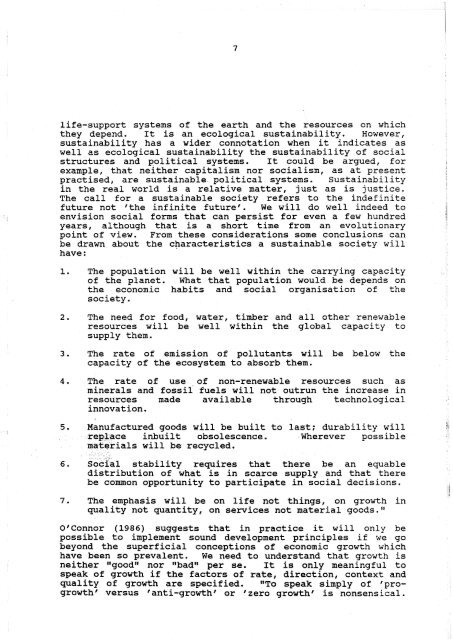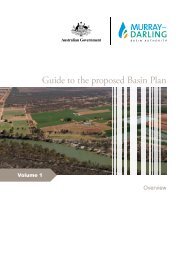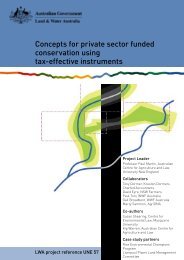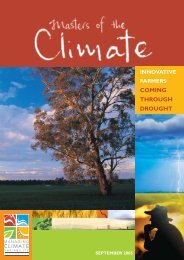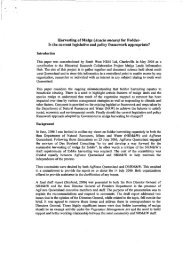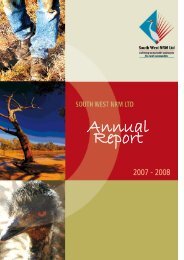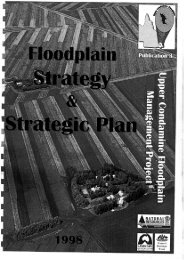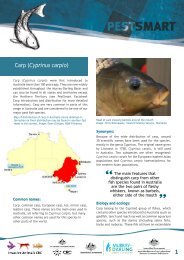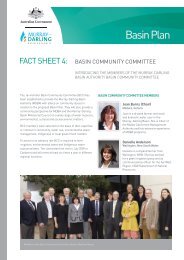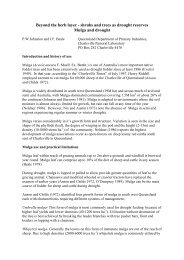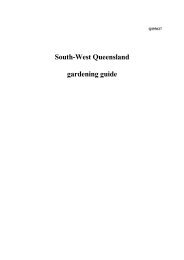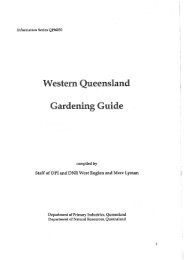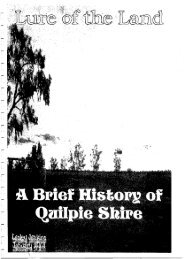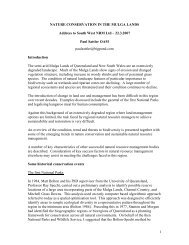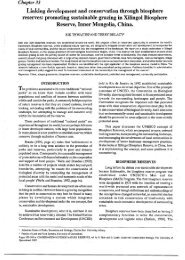soil-conservation-people-religion-and-land.pdf - South West NRM
soil-conservation-people-religion-and-land.pdf - South West NRM
soil-conservation-people-religion-and-land.pdf - South West NRM
Create successful ePaper yourself
Turn your PDF publications into a flip-book with our unique Google optimized e-Paper software.
life-support systems of the earth <strong>and</strong> the resources on which<br />
they depend. It is an ecological sustainability. However,<br />
sustainability has a wider connotation when it indicates as<br />
well as ecological sustainability the sustainability of social<br />
structures <strong>and</strong> political systems. It could be argued, for<br />
example, that neither capitalism nor socialism, as at present<br />
practised, are sustainable political systems. Sustainability<br />
in the real world is a relative matter, just as is justice.<br />
The call for a sustainable society refers to the indefinite<br />
future not 'the infinite future'. We will do well indeed to<br />
envision social forms that can persist for even a few hundred<br />
years, although that is a short time from an evolutionary<br />
point of view. From these considerations some conclusions can<br />
be drawn about the characteristics a sustainable society will<br />
have :<br />
1. The population will be well within the carrying capacity<br />
of the planet. What that population would be depends on<br />
the economic habits <strong>and</strong> social organisation of the<br />
society.<br />
2. The need for food, water, timber <strong>and</strong> all other renewable<br />
resources will be well within the global capacity to<br />
supply them.<br />
3. The rate of emission of pollutants will be below the<br />
capacity of the ecosystem to absorb them.<br />
4. The rate of use of non-renewable resources such as<br />
minerals <strong>and</strong> fossil fuels will not outrun the increase in<br />
resources made available through technological<br />
innovation.<br />
5. Manufactured goods will be built to last: durability will<br />
replace inbuilt obsolescence. Wherever possible<br />
materials will be recycled.<br />
6. social stability requires that there be an equable<br />
distribution of what is in scarce supply <strong>and</strong> that there<br />
be common opportunity to participate in social decisions.<br />
7. The emphasis will be on life not things, on growth in<br />
quality not quantity, on services not material goods."<br />
Ofconnor (1986) suggests that in practice it will only be<br />
possible to implement sound development principles if we go<br />
beyond the superficial conceptions of economic growth which<br />
have been so prevalent. We need to underst<strong>and</strong> that growth is<br />
neither ''@goodw nor "badg1 per se. It is only meaningful to<br />
speak of growth if the factors of rate, direction, context <strong>and</strong><br />
quality of growth are specified. "To speak simply of 'progrowthg<br />
versus 'anti-growth' or 'zero growth' is nonsensical.


